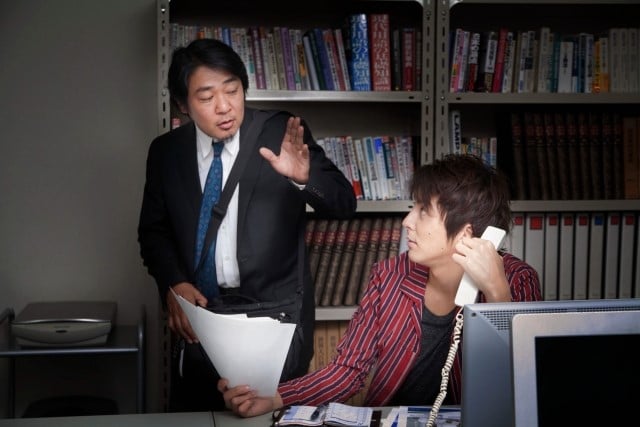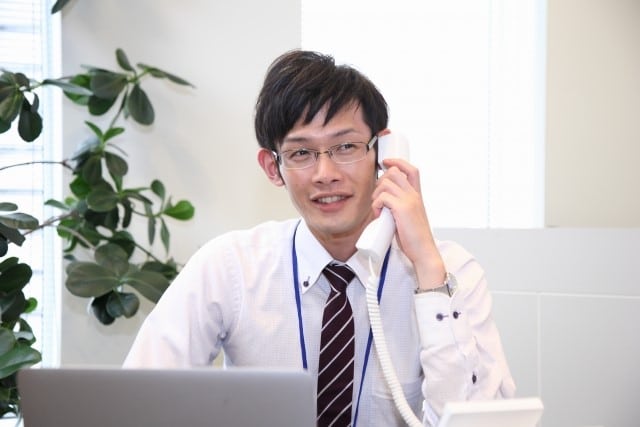Kaori Nomura
23 July 2018
Three Essential Japanese Phrases for The Workplace
In the Japanese language, there are some Japanese-specific expressions. These expressions may have several different meanings in a phrase or there are no direct translations in English, making them difficult to translate. The following three Japanese phrases are very common for the workplace. If you can use these phrases in your conversation with your Japanese colleagues, associates, or business partners, your speech will sound smooth and you will make a great impression on them.
Essential Phrase #1
お疲れ様です。/お疲れ様でした。
Otsukaresama desu./ Otsukaresama deshita.
Thank you for your hard work.
Good job today.
See you tomorrow.
Hello.
This phrase is used to show your appreciation for your colleagues or your boss’s efforts, so the translation will be “Thank you for your hard work”, “You did great a job today”. In your Japanese classes, you may have been taught that this phrase is uttered when someone leaves the workplace.
A: お先に失礼します。
A: Osaki ni shitsurei shimasu.
A: I’m leaving for today.
B: お疲れ様でした。
B: Otsukaresama deshita.
B: Thank you for your hard work (see you tomorrow).
When you come across someone you know in your workplace, you can also use this phrase as “Hello”. This phrase could be used as a greeting in an actual conversation and in your email as well.
鈴木さん、お疲れ様です。
Suzuki-san otsukaresama desu.
Hello, Mr. Suzuki.
Essential Phrase #2
いつもお世話になっております。
Itsumo osewani natte orimasu.
Thank you for your ongoing support.
I hope all is well.
This set phrase will be written at the top of your email, after the salutation. The direct translation will be “Thank you for your ongoing support.” but it is similar to “I hope all is well.”, “I hope you are doing great.” This phrase is only for your business partner, never use it with someone in your company. You can also use it as a greeting before a conversation starts on the phone.
(in an email)
CCB株式会社
CCB Kabushiki-gaisha
CCB Co., Ltd.
営業部マネージャー
Eigyou-bu maneejaa
Manager, Sales Department
鈴木様
Suzuki-sama
Dear Mr. Suzuki
いつもお世話になっております。
Itsumo osewani natte orimasu.
I hope all is well.
広告の見積書の件ですが…
Koukoku no mitsumorisho no ken desu ga…
It is regarding an estimate for the advertising …
(on the phone)
A: ABCの木村と申します。
A: ABC no Kimura to moushimasu.
A: This is Kimura, calling from ABC company.
B: いつもお世話になっております。
B: Itsumo osewani natte orimasu.
B: Thank you for your ongoing support.
Essential Phrase #3
よろしくお願いします。
Yoroshiku onegai shimasu.
Nice to meet you.
I’m looking forward to working with you.
Thank you in advance.
I appreciate your continued support.
Kind regards.
Nice to meet you.
When you meet someone for the first time, or when you start working at a new place, “Yoroshiku onegai shimasu” is uttered. You would have learned in your Japanese classes that this phrase is used to express that you are glad to meet someone.
はじめまして。けいこです。よろしくお願いします。
Hajimemashite. Keiko desu. Yoroshiku onegai shimasu.
How do you do. I’m Keiko. Nice to meet you.
I’m looking forward to working with you.
You can say this phrase to the person you are going to work with, such as at a new workplace, doing a new project with your clients, or doing a team work with people you do not know. “I’m looking forward to working with you” is a close translation in English.
A: 本日はよろしくお願いします。
A: Honjitsu wa yoroshiku onegai shimasu.
A: I’m looking forward to working with you today.
B: こちらこそよろしくお願いします。
B: Kochirakoso yoroshiku onegai shimasu.
B: Likewise.
Thank you in advance.
When you ask someone to do something, you can express your appreciation in advance by using this phrase.
その書類を送っていただけますか。
Sono shorui wo okutte itadagemasu ka?
Could you please send the document?
よろしくお願いします。
Yoroshiku onegai shimasu.
Thank you in advance.
I appreciate your continued support.
This is also a fixed phrase in an email. While itsumo osewani natte orimasu is written at the top of the email, yoroshiku onegai shimasu will be written at the bottom of the email. This phrase conveys the meaning of the writer’s expectation of a good relationship moving forward.
この度は誠にありがとうございました。
Konotabi wa makoto ni arigato gozaimashita.
Thank you for all your help.
今後ともよろしくお願いします。
Kongotomo yoroshiku onegai shimasu.
I appreciate your continued support.
Kind Regards
This expression is used to close an email. It is similar to “Sincerely”, “Kind Regards”, “Best regards” in English.
(in an email)
では、明日1時に御社に伺います。
Dewa, ashita ichi-ji ni onsha ni ukagaimasu.
Then, I will come to your company at 1pm tomorrow.
よろしくお願いします。
Yoroshiku onegai shimasu.
Kind regards.
If you want to learn more Japanese for business use, take a look at our Japanese classes or book a trial lesson.




